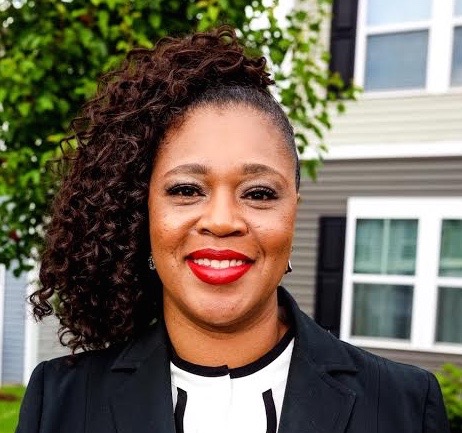When Sonya Thomas was asked about the impact COVID-19 is having on K-12 education in black communities across Tennessee, the proud mother of four didn’t hide her emotion.
“I’m worried about our children,” said Thomas, her voice trembling. “It’s serious.”
Thomas is executive director of Nashville P.R.O.P.E.L., a parent advocacy group made up of mostly Black and brown parents from North Nashville. The parents, and other education advocates, say there was an issue with learning loss before the coronavirus, but that COVID-19 worsened the problem when students had to learn remotely instead of in-person instruction.
Earlier this year, Tennessee Gov. Bill Lee commented on the negative impact the pandemic has had on the state’s education system, and abroad.
“Nationally that looks like a 50 percent reduction in reading proficiency and a 65 percent reduction in math proficiency in third grade students,” said Lee. “That sort of forecast is forcing an unacceptable future on our kids.”
In Tennessee, the statewide test used to assess growth and proficiency among public school students showed that proficiency overall declined by about 5 percent compared to the latest data. In Metro Nashville Public Schools, one of three of the largest school districts in Tennessee, there was a decline of 8 percent.
What’s lost in those figures, said Thomas, are the number of minority students who have been adversely impacted.
To address the issue, Thomas and her group have been pushing for individualized learning plans for “each student that addresses the learning loss that includes actions, interventions, and partnership with parents.”
“We believe children should be looked at as individuals, and not have a one-size-fits-all kind of education,” said Thomas, who in partnership with her sister organization Memphis Lift, has shared the plan with districts across the country.
“When you go to the doctor, they don’t just hand you a prescription. They do an assessment. We already knew that children are being assessed, but using that data to inform how to educate that child so that child’s individual needs are being looked at, we haven’t really seen that being done. So, we began to fight for individualized learning plans where children will be assessed, and then a plan will be wrapped around that individual child, along with partnership with the parent.”
Metro Nashville Public Schools spokesman Sean Braisted said MNPS has met with Thomas “on many occasions to discuss our plans for accelerating learning progress.” As for examples of their individualized learning plans, Braisted pointed to a “Personalized Student Dashboard” that allows parents to monitor student progress, as well as a “High Dosage Tutoring” plan that seeks to match more than 7,000 MNPS students with “trained, high-impact tutors.”
“In terms of individualized student support, we follow a Multi-Tiered System of Supports (MTSS) protocol to assess the needs of students and layer in additional supports and interventions through personalized learning time,” said Braisted.
However, Thomas has said MNPS’s plans are “short-term, stop-gap programs,” and that more needs to be done to help students. Her group envisions the personalized learning plans co-existing with the MNPS Dashboard.
More than anything, Thomas said students should be proficient in reading, which is why she is pleased Gov. Lee has started a statewide initiative called Reading 360. According to the latest assessment of Tennessee students, literacy proficiency declined by 6 percent, and by 6 percent in MNPS.
The governor’s $100 million initiative seeks to ensure Tennessee districts, teachers, and families are equipped with tools and resources to help students read on grade level by third grade. To help support literacy development in Tennessee, the state has leveraged about $60 million of one-time federal COVID-19 relief funding and $40 million in federal grant funding to launch Reading 360 and invest in optional reading resources and supports at no cost to the state or districts.
“Tennessee is deeply committed to building strong reading skills in our youngest students, and Reading 360 has already reached 50,000+ families through free, at-home reading resources and 9,000+ Tennessee educators through summer literacy trainings,” Education Commissioner Penny Schwinn said recently.
Parent Jonathan Patterson has three children who currently attend a Nashville high school. He said helping them navigate the rough waters of remote learning amid the pandemic has been tough, but they’ve managed to stay afloat, and are doing well now that they’ve returned to in-person learning.
However, he said some students have not been as fortunate, which is why he’s also pleased the governor’s reading initiative is in place.
“When you learn to read, it sets you up for the future,” said Patterson, adding that being literate can lead to success in other subjects, like math and science.
Patterson’s 14-year-old daughter, Jada-Simone, acknowledged getting behind in some of her subjects while learning remotely. But when she returned to her school, she said she utilized a “personal learning time” period to meet with teachers in the classes where she had fallen behind, and catch up.
Jada-Simone also said the experience of working remotely, and other adversity she faced because of the pandemic, has taught her some valuable lessons.
“I learned not to procrastinate, and not to shuck and jive,” she said. “When working remotely, if you missed one assignment, it was so hard for you to catch up. When I got back in-person, I still kept the same mindset; don’t’ shuck and jive, don’t procrastinate.”
To learn more about Nashville P.R.O.P.E.L., visit https://bit.ly/3yYZo1Z.
For more information about Reading 360, visit https://bit.ly/3jZlu04.
Editor’s Note:
This is the second story in a series on the impact COVID-19 is having on K-12 education in black communities across Tennessee.








